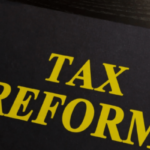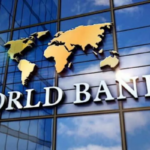The World Bank has released the 7th Edition of the South Sudan Economic Monitor (SSEM), titled A Pathway to Overcome the Crisis, which outlines the country’s economic challenges and prospects. The report highlights that South Sudan’s economy is expected to contract by 30 per cent in the 2024/25 fiscal year. However, economic recovery is projected for the 2025/26 fiscal year, provided oil exports resume.
The report notes that South Sudan’s economy has been in decline for five consecutive years, with Gross Domestic Product (GDP) per capita expected to drop to nearly half of 2020 levels. The primary cause of this contraction is the disruption of oil production, leading to a loss of approximately $7 million per day in export revenues. This has affected public finances, contributing to salary arrears and a reduction in funding for essential services such as health and education.
Read also: Afreximbank signs $450m credit facility agreement with ARISE IIP
Challenges facing the economy
The SSEM identifies several key issues that have exacerbated South Sudan’s economic crisis. Hyperinflation and food insecurity now impact almost 80 percent of the population. The report estimates that poverty has increased to 92 percent. Weak governance, poor management of oil revenues, and ineffective fiscal policies have further contributed to economic instability. The underdeveloped financial sector also limits economic diversification and access to credit.
Read also: Network International partners with MTN Group Fintech for payment processing
Call for reforms
Despite these economic difficulties, the SSEM highlights opportunities for recovery through decisive action. The report stresses the need for urgent reforms to stabilise the economy and promote sustainable growth.
“The situation is very challenging, but the government has committed to undertaking reforms to tackle macroeconomic and fiscal challenges and enhance governance. If carried through, these reforms will provide for greater macroeconomic stability as well as greater fiscal sustainability that will allow the government to improve its delivery of services to the population,” said Charles Undeland, World Bank Group Country Manager for South Sudan.
He added, “By maintaining macroeconomic stability, improving governance, and enacting strategic structural reforms, South Sudan can unleash the potential of its private sector and pave the way for recovery and prosperity. The World Bank Group is keen to support the government in these efforts.”
Read also: ExxonMobil eyes $10 bn LNG decision in Mozambique by 2026
Policy Recommendations
The SSEM outlines several policy measures to address inflation and fiscal challenges:
- Strengthening the macroeconomic framework and increasing exchange rate flexibility.
- Reducing reliance on monetary financing to stabilise the economy.
- Improving oil revenue management and fiscal transparency.
- Boosting non-oil revenue sources, promoting economic diversification, and prioritising social spending.
- Implementing a strategy to clear government salary arrears.
- Addressing poverty and enhancing growth drivers such as agricultural production.
Institutional and structural reforms
The report underscores the need for structural reforms to reduce poverty and foster economic growth. Kamer Karakurum Ozdemir, World Bank Senior Economist, stated, “A fundamental shift in South Sudan’s policy and institutional framework is needed to reduce poverty and enhance economic growth. Many of the essential actions to addressing the root causes of poverty in the country and for providing the basis for lasting peace are long-standing government policy and institutional reform commitments.”
The report suggests that investing in human capital and state capacity will be key to addressing economic challenges. It also calls for creating a favourable environment for private sector growth and strengthening local institutions and civil society.
Read also: Afreximbank to establish $1 bn oil service financing facility in Guyana
Outlook and next steps
The SSEM serves as an annual economic assessment for South Sudan, aimed at policymakers, business leaders, analysts, and development partners. The report urges the government to take immediate steps to stabilise the economy and lay the foundation for long-term growth. The World Bank emphasises that sustained policy reforms will be necessary to restore investor confidence, ensure fiscal stability, and improve the living conditions of South Sudan’s population.
The success of these reforms will depend on the government’s ability to implement policies effectively and strengthen institutional governance. With the right approach, South Sudan has the potential to overcome its current crisis and build a more stable and inclusive economy.










